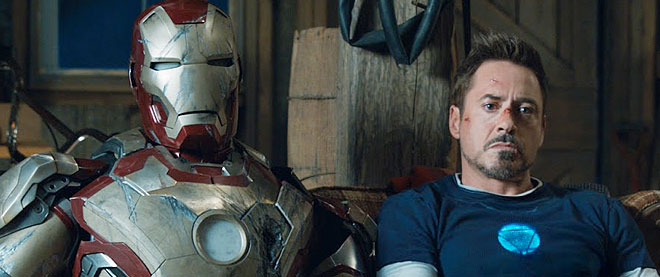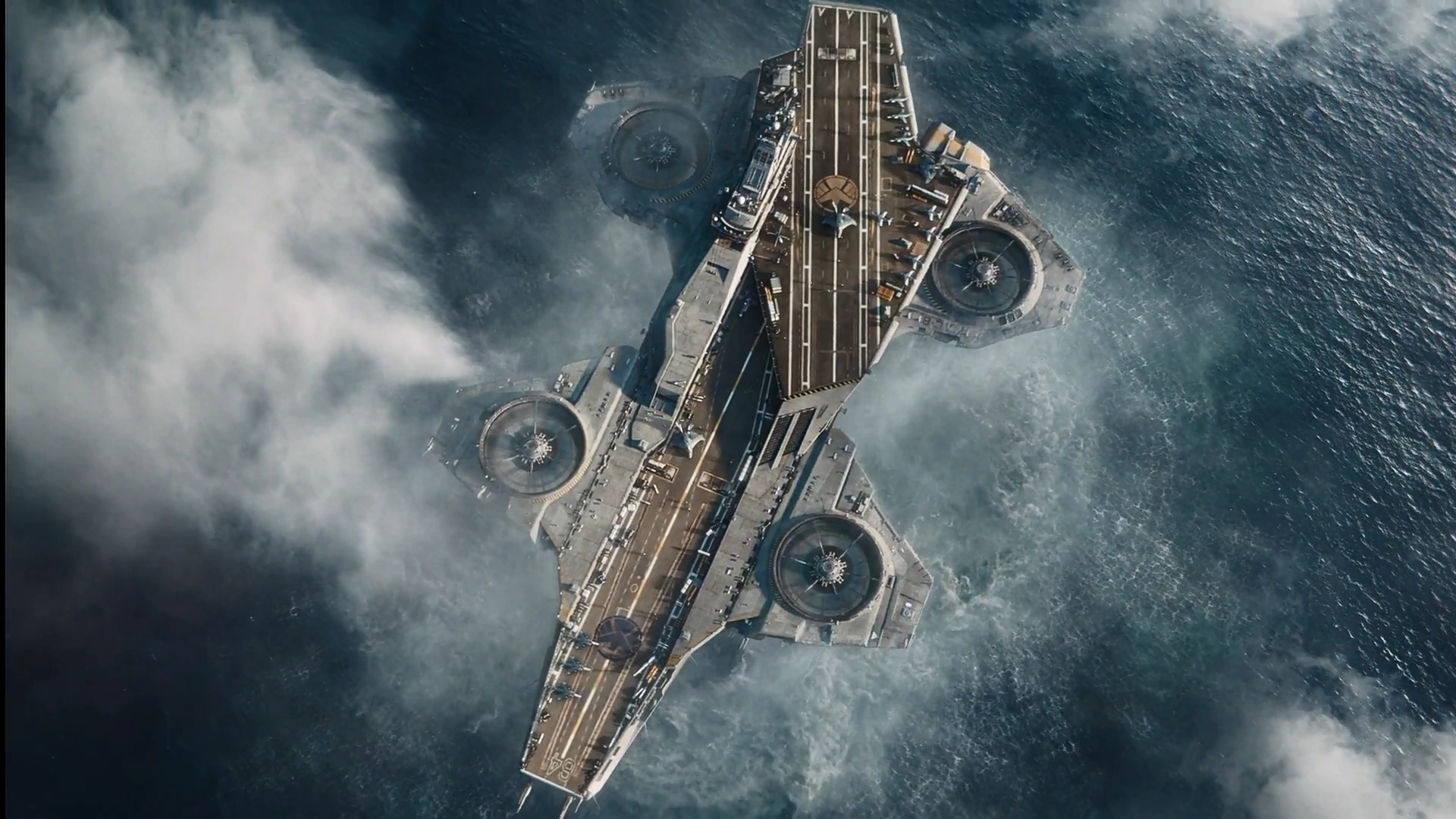It goes without saying that the creation of the Marvel Cinematic Universe (MCU, from here on out) is one of the most ambitious endeavors in recent film history. The franchise covers not only the films from which it started (which, in and of itself, is made up of various character-centric mini-franchises), but also various television series on ABC and Netflix. The series is as big as it’s ever been… but the cracks in the MCU are starting to show.
Status Quo Is God
As Marvel Studios started building the MCU, they gained a reputation for taking risks with the movies they made. Back in 2008 the rights to Marvel’s biggest characters, Spider-Man and Wolverine, were owned by Sony and Fox respectively. Because of that Marvel Studios had to make do with the other, less popular Avengers, starting with Iron Man. They also took risks with tone, making bright adventure films during the heyday of the darker and more serious Dark Knight Trilogy. The Avengers was unprecedented, a crossover of three budding movie franchises in a team movie that handled its ensemble cast with grace. The movie was a massive hit, and going into Phase 2 the studio continued to produce innovative stories and explorations of character.
Well, for the most part.
The Avengers was a turning point for Marvel, from both a Doyalist and a Watsonian perspective. The Chitauri invasion of New York changed the MCU forever. The aftermath of the event was explored a number of ways in Phase 2, from its impact on the world itself in the first seasons of Daredevil and Agents of SHIELD, to the way it affected an individual character in Iron Man 3 (and both in Captain America: The Winter Soldier). The alien invasion of New York in broad daylight was a huge shake up, and drastically shifted the MCU’s status quo.

Captain America: The Winter Soldier presented another massive event for the MCU – the revelation that SHIELD had been infiltrated by the fascist terrorist organization HYDRA. The movie ended with the dissolution of the agency, and Black Widow exposing HYDRA by leaking SHIELD’s secret files onto the internet.
Unlike the Chitauri invasion, SHIELD’s fall didn’t have the same impact. The event was explored in the last quarter of Agents of SHIELD season 1, but the show ended with Nick Fury naming Phil Coulson the new director of SHIELD and asking him to rebuild the agency in the shadows from his small team. This, after agreeing with Steve in the film that “it all goes”. The aftermath of the event is glossed over in The Avengers: Age of Ultron, a movie about a team first brought together by SHIELD, with three main characters who are former SHIELD agents, and HYDRA responsible for giving two other main characters their powers.
And that’s not all. The climax of Thor: The Dark World consisted of another alien invasion of Earth, yet this is barely explored in following films or Agents of SHIELD, despite the latter having three crossover episodes that had to do with the movie. In Agents of SHIELD, a case of Terrigen crystals dispersed at the bottom of the ocean, infecting the wildlife and causing Terrigenesis in people who ingested fish or fish byproducts. This is not mentioned at all in Captain America: Civil War, though the Sokovia Accords are mentioned briefly in AoS. Daredevil and Jessica Jones operate as if the Chitauri invasion was the last big event to effect the world, and have yet to mention any of the events of Phase 2 outside of easter eggs on the news.
On the Doylist side of things, The Avengers provided Marvel Studios with its first super successful movie formula. While most of the properties in Phase 2 had unique stories and events, we started to see some recycling of the successful elements from The Avengers. Guardians of the Galaxy and Agents of Shield copied the caustic team dynamic, but both got away with it by doing it well and not copying the characters themselves. There was also an increased reliance on comedy in AoS and the last few movies in Phase 2, with varying results.
Marvel has fallen victim to a trope called Status Quo is God. In universe, various events are having less of an impact on the universe as a whole, and when they should they are either ignored or immediately written away. Out of universe, Marvel has become famous for a certain type of movie, so their properties are becoming same-y as they replicate character dynamics, tone, and style to fit that mold.
The Avengers: Age of Ultron is the perfect storm of both elements. It is supposed to be a ‘nexus point’ that exists in the aftermath of the films preceding it, yet it only acknowledges those films insofar as they enable the plot. It ups the ante on the comedy despite the darker subject matter. As a result the movie has serious tonal issues and causes continuity snarls with Iron Man 3, a movie that should have made this one’s plot impossible.

It is obvious that Marvel is trying to avoid alienating new and casual viewers with continuity lockout, yet there is a point where lockout is unavoidable for a long series, especially one as expansive as this. As well, Marvel’s Avengers-inspired ‘brand consistency’ is limiting the types of movies they are willing to make. It’s ironic that the studio that came to prominence for taking chances is increasingly afraid to.
Limitations
If you’ve been paying attention to Agents of SHIELD recently, you may have noticed that the crossovers with the movies have been few and far between. When the show started, the movies had a huge impact on its events – along with the aforementioned effects of the HYDRA reveal and the three episodes connected to Thor: TDW, Iron Man 3’s Extremis was one of the main ingredients in the super soldier cocktail used by Project Centipede. It even got to make tenuous connections to Guardians of the Galaxy, with the Kree being responsible for creating the Inhumans.
Fast-forward to Age of Ultron, and the crossovers feel like an afterthought. Two characters are kidnapped and end up in the cells that once held Wanda and Pietro Maximoff. Raina also has some visions of Ultron and his minions. That’s as close as the movie comes to affecting the show’s plot. On the flipside, Coulson is responsible for providing the Avengers with the coordinates for the HYDRA base containing Loki’s scepter, an act that sets the events of the movie in motion, but only Maria Hill knows this, and it never comes up in the film. Another character on the show, Sam Koenig, is responsible for the helicarrier that appears at the movie’s climax, but only Director Fury knows this (presumably), and again it never comes up.

Crossovers have always been an issue for the MCU, though. Age of Ultron marks the first time that Agents of SHIELD has actually had an impact on the movies, but you wouldn’t know it unless you watched the show. Season 1 of Daredevil explored the aftermath of the destruction caused by Chitauri invasion, but Daredevil is never mentioned in Agents of SHIELD or any of the films. Jessica Jones only mentions the Avengers sporadically, as if it is just reminding you that yes, it takes place in the same universe.
Even intermedium crossovers are rare. We never see Tony call the other Avengers or SHIELD to help him deal with the international terrorists in Iron Man 3, nor do the Avengers show up for the fall of SHIELD – not even Hawkeye, who is a SHIELD agent. While Jessica Jones and Matt Murdock don’t know each other, Daredevil never getting into the Kilgrave mess makes no sense, especially when Hope Schlottman’s predicament was explained on local radio.
In Phase 1, the format of a cluster of solo movies followed by the team film worked because the characters didn’t know each other. SHIELD was the thread that strung each movie together, and the force that brought the characters together in The Avengers. Following that movie, the characters were supposed to have become friends, or at the very least acquaintances. Are we just supposed to believe that they don’t ask each other for help, even when it makes a lot of sense for them to? Was Clint on vacation during CA:TWS? Seriously, why wasn’t he in that?
I don’t know how things work behind the scenes at Marvel Studios, so I don’t know what would go into making smaller character crossovers happen. I’ve also heard that getting Robert Downey Jr. to do anything less than a starring role is near impossible (hence why Captain America: Civil War is basically The Avengers 2.5). Character overload is also an issue at this point, but the lack of interconnectivity between properties is beginning to affect fans’ suspension of disbelief. How long are we supposed to buy that these people only talk to each other when the world is ending?

These are the limitations that Marvel should have taken into consideration when they decided to embark on this adventure – or at least when they decided to make it so sprawling. On paper, the idea to mimic the shared universe of the comics seems great, but comics and films are totally different mediums that play by totally different rules. What works in one will not work in the other.
The MCU has reached its breaking point. The movies are beginning to stagnate, and AoS and the Netflix series may as well exist in their own universes for all the impact they have on each other and the franchise at large. I personally abandoned ship after Age of Ultron, but it’s still disappointing, knowing how quickly this thing I used to love collapsed on itself after reaching its peak. Though some future projects look hopeful (particularly Black Panther), I don’t look forward to the slow death the movies will suffer over the next few years.
Images courtesy of Marvel Studios

